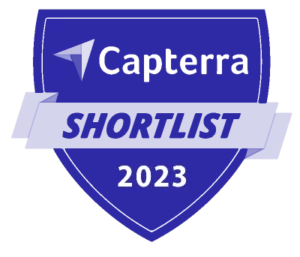Guide to Quebec Short-Term Rental Regulations
The tourism industry is booming in Quebec. Every year,
millions of tourists flock to this Canadian province to enjoy its rich culture and natural beauty.
Quebec may be the ideal location for investments but it’s important to tread carefully. The government has recently cracked down on short-term rentals and introduced new rules. If you unwittingly violate a law, you could face a fine or have to close your business.
Our guide aims to support vacation rental operators by giving an overview of all the short-term rental (STR) regulations in Quebec. We also take a closer look at some of its most popular destinations.
Disclaimer: Our guide is intended for informational purposes only and doesn’t constitute legal advice. For guidance on specific cases, please consult a property lawyer.
Short-term rental regulations in Quebec
Quebec requires you to register any kind of tourist accommodation establishment. By that, they mean any dwelling unit you lease for periods of 31 consecutive days or less.
This includes:
- Rooms
- Suites
- Apartments
- Houses
- Tents and caravans
Before you can register, you must obtain a Notice of Compliance for your property. This proves you can operate your short-term rental business under the local bylaws. You can find and download the form
here.
Quebec makes an exception if you’re using your principal residence. They qualify that this means the place where you live, spend most of your time, and use as your main address. You still have to register but you don’t need your local government’s approval.
You can then register with the the Corporation de l’industrie touristique du Québec (CITQ). If it’s your primary residence, use this
form. Otherwise, you must complete this
form and provide the following:
- A copy of the Notice of Compliance
- The property title, tax statement, or rental contract
- Proof of more than CAD $2 million in civil liability insurance
- A declaration from the co-owners or leaseholder (if applicable)
After you’ve submitted the application, CITQ contacts you about paying the registration fee. This amount changes yearly and depends on your type of business. Once you’ve paid, you receive your registration certificate (also known as a classification certificate).
You must then renew your registration annually and keep paying the fees. If you fail to meet any of these requirements, you could receive a fine of up to $100,000.
Short-term rental platforms like Airbnb and VRBO are also responsible for making sure every property has a registration number. If they’re found to have illegal listings, they get hit with similar charges.
Quebec put these harsh penalties in place to deter people from running illegal Airbnbs. They want to regulate STRs and check they’re safe for guests.
Tax requirements for Quebecois short-term rentals
All businesses in Canada are subject to national income tax. The starting rate is 38% which is usually lowered to 15%.
Unlike most other provinces, Quebec handles its income taxes separately. That means you must pay these fees directly to Revenu Québec, not the Canada Revenue Agency (CRA). Quebec has a tiered tax system, which ranges between 14% and 25.75%.
Aside from income tax, you usually have to remit the following amounts from guests:
- Goods and Sales Tax (GST) at 5%
- Quebec Sales Tax (QST) at 9.975%
- Lodging tax at 3.5%
- Municipal accommodation tax
If guests pay via a booking platform, the operators are responsible for remitting all these taxes instead.
Short-term rental rules for popular Quebecois destinations
Local authorities often set their own rules for tourist accommodation. That’s why it’s important to get to know all the regulations at both the provincial and municipal levels.
Here are the laws and guidelines for short-term rentals in hotspots across Quebec:
Montreal
Montreal has a thriving vacation rental market with most people arriving in Spring or Fall. Many visitors look for accommodation within the historic streets of Old Montreal or the surrounding area.
The main limitation is Montreal’s strict zoning laws. Many of its boroughs prohibit you from operating short-term rentals in residential areas. You can check the laws for the area you’re considering
here.
Businesses must also comply with the Montreal health and sanitation requirements for occupied dwellings. These ensure that properties are clean, safe, and well-maintained. One of the biggest requirements is that you have adequate space for all your tenants and guests.
Quebec City
As a UNESCO World Heritage site, Québec City has a lot to offer tourists. Its historic streets and breathtaking views usually draw in millions of visitors each year.
Due to the high demand, Québec City plans to tighten its short-term rental regulations. The government is currently reviewing its laws and consulting with residents. They’ve arranged town hall meetings in all the major boroughs across late 2024 and early 2025.
The laws are already stricter for primary residents. You must obtain a permit before you accept guests and you’re limited to 90 days per calendar year.
Sherbrooke
Known as the heart of the Eastern Townships, Sherbrooke has a mix of culture, sports, and leisure activities. It’s also a more affordable alternative to Montreal and Québec City.
Sherbrooke also doesn’t permit vacation rentals in certain areas of the city. You can check your property by looking at their
interactive map or contact the local authorities.
Magog
Although Magog is only a small place, it still gets its fair share of visitors. There are a lot of outdoor activities on offer due to the nearby lake and mountains.
Magog has strict zoning bylaws like its neighboring cities. You have to check whether short-term rentals are permitted in your area and potentially arrange an inspection. Visit
this webpage to arrange this.
The town also has more limitations on guests. The rules state you may only host one person or group of related people at any one time. In other words, you can’t accept multiple bookings for the same dates.
If you’re from outside Quebec and don’t speak French, note that the Magog government website doesn’t have an English option.
Mont-Tremblant
Just a two-hour drive from Magog, you’ll find the beautiful resort town of Mont-Tremblant. It’s busiest in winter due to the ski slopes. However, you can expect year-round demand for accommodation as Mont-Tremblant has a range of shops and fine restaurants.
Mont-Tremblant has recently introduced a higher tax rate for tourist accommodation. The aim is to generate more revenue to help resolve the housing crisis.
As before, you must check whether you have the right to operate an STR business in your area. Mont-Tremblant has an
interactive map you can use. You must see whether you need to apply for a change of use certificate. If so, you must obtain one from the municipal government.
Gatineau
Gatineau has one of the most affordable real estate markets in Canada according to a recent report. If that isn’t enough, it attracts high levels of tourists throughout the year.
The city generally just requires vacation rental operators to follow Quebecois law. However, it has detailed guidelines about property standards. As the property owner, you must:
- Keep the property in good condition
- Clear away leaves and other plant debris
- Ensure garbage cans are closed with a tight-fitting lid
- Maintain ditches on your land
Note that the city of Gatineau reserves the right to inspect your property at any time and fine you if they uncover issues.
Upcoming changes to Quebec short-term rental laws
The Canadian press recently revealed that
some Airbnb hosts are using fake registration numbers. This allows them to continue to run their businesses illegally and avoid their tax obligations. However, it’s relatively easy to see who’s skirting the law as they use the same numbers.
Spokespeople for local authorities have suggested there may be more crackdowns. That’s why crucial to wait until you’re fully registered to list your Quebecois property on any platforms or start accepting guests.

Resources
- Tourist Accommodation Act, Légis Québec
- Corporation de l’industrie touristique du Québec, CITQ
- Corporation tax rates, Government of Canada
- Income tax rates, Revenu Québec
- Short-term tourist rentals, Montreal
- Hébergement touristique collaboratif, Ville de Québec
- Hébergement courte durée, Ville de Québec
- Quebec City Tourism Office, Québec Cité
- Hébergement touristique, Qu’est-ce que c’est?, Ville de Magog
- Résidences de tourisme, Ville de Mont-Tremblant
- Établissement de résidence principale de type Airbnb, Gatineau
- Residential rentals, Ville de Sherbrooke






